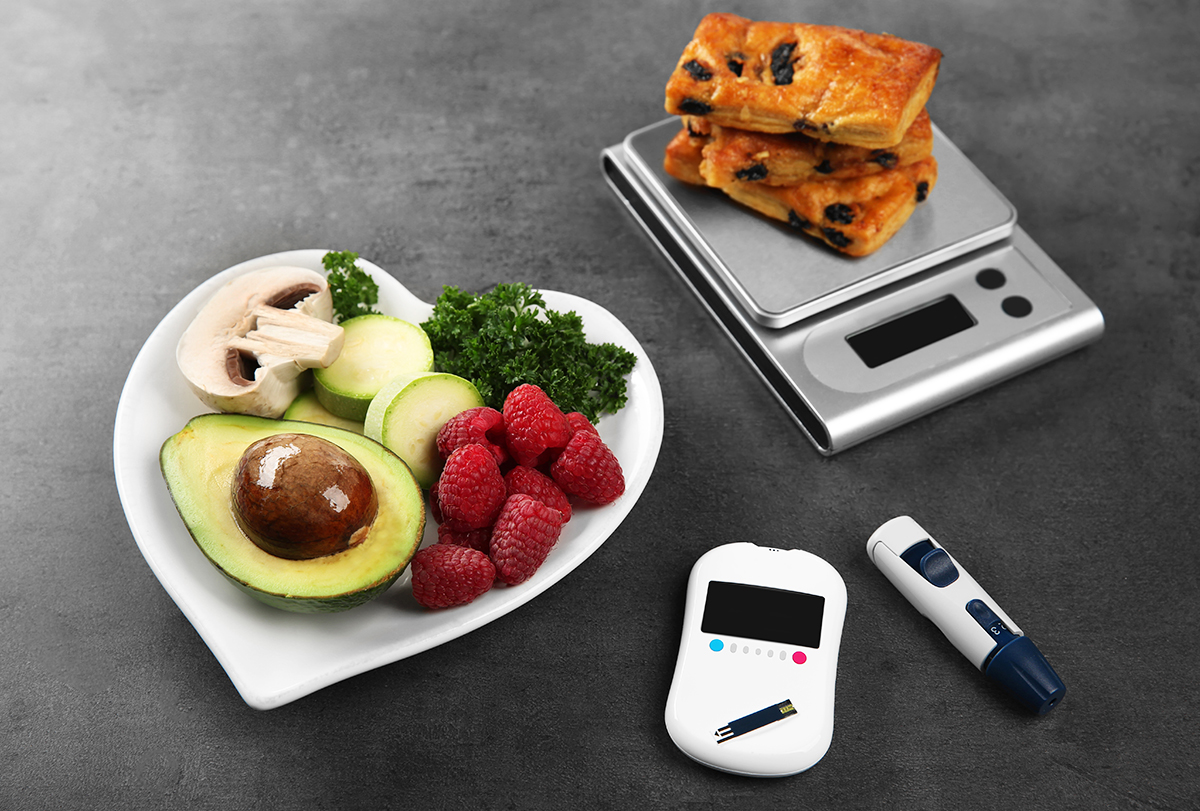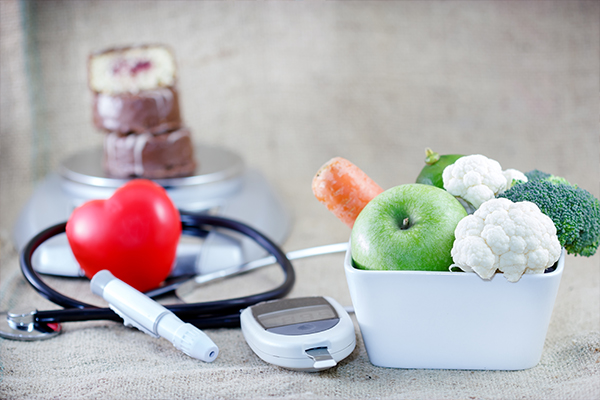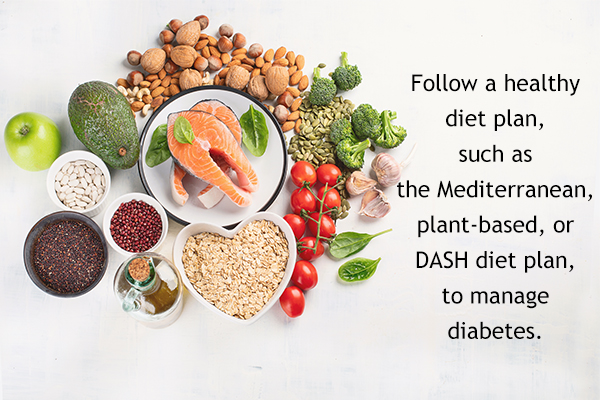In this article:
Diabetes mellitus or diabetes is a chronic metabolic disorder, which can lead to serious health complications if left untreated. While there is no cure for diabetes, it can be effectively managed through medication, diet, exercise, and an overall healthy lifestyle.

Healthy eating plays a key role in the management of diabetes. Although the meal plan for diabetics has to be customized according to each individual patient, there are general healthy eating recommendations to effectively manage diabetes.
Worst Foods If You Have Diabetes

Excessive consumption of foods high in added sugar, refined carbohydrates, and highly processed food products are harmful to people with diabetes because they cause a rapid increase in blood sugar and impair long-term blood glucose control. (4)
Some examples of foods high in added sugar are soda, candies, and desserts such as cakes, cookies, and ice cream. Excessive consumption of highly processed foods and refined grain products, such as white rice, refined-grain pasta, and refined flour products, are also harmful.
Dried fruits may have a high concentration of sugar content. It’s best to avoid these, but if you are going to eat them, try to eat them in moderation.
It may not be practical to completely eliminate these foods because of preferences, economic/social factors, and food accessibility. A better approach is to reduce the consumption of these harmful foods and replace them with healthy food choices.
Limit Your Meat Intake
Emerging evidence suggests that a high intake of red and processed meat may be associated with a higher risk of developing type 2 diabetes. (5) In contrast, plant-based, unprocessed, or minimally processed foods, may help lower the risk of chronic diseases, including type 2 diabetes. (5)
While further studies are needed to confirm the harmful effects of excessive meat consumption on diabetes management, reducing meat consumption and replacing it with healthy plant-based food choices, such as whole beans (e.g., soybeans, garbanzo beans), lentils, tofu, and quinoa may offer additional health benefits for diabetics.
Include Fruits in Your Diet
People with diabetes should be encouraged to consume a variety of fresh fruits because they are nutrient-dense foods high in fiber. Fresh fruits are healthy food choices to replace added sugar in the diet. Naturally sweet fruits offer a healthy alternative to sugar-laden desserts.
Canned fruits without added sugars should be included only when fresh fruit choices are not available. If canned fruits are to be consumed, they should be packed in their own juice and should be without any added sugars.
ALSO READ: 10 Healthy and Diabetes-Friendly Fruits
Does the Same Diet Work for Both Types of Diabetes?
The general individualized healthy eating patterns offer similar health benefits for managing both type 2 and type 1 diabetes. An important difference is that the diet for people with type 1 diabetes should take into account the insulin/medication regimen and carbohydrate content of meals.
Consistent carbohydrate intake and/or carbohydrate counting based on insulin/medication regimen is key for the management of type 1 diabetes.
Is There Any Standard Diet for All Diabetes Patients?

People with diabetes should follow individualized healthy eating patterns emphasizing nutrient-dense foods based on their preferences and goals. They need not follow any specific diet to achieve blood glucose control.
However, if a diabetic patient prefers to follow a healthy diet plan, such as the Mediterranean, plant-based, or DASH diet plan, it can be modified and individualized to optimize diabetes management.
Final Word
People with diabetes should work closely with their health care providers, including an RDN, to follow individualized healthy diet patterns emphasizing nutrient-dense foods such as non-starchy vegetables, fresh fruits, and whole grains.
Meal plans for diabetics should avoid or limit the consumption of foods containing added sugars, refined carbohydrates, and highly processed foods. The healthy eating plan for overweight/obese diabetics should be individualized to promote weight loss and maintenance of healthy weight for optimizing long-term diabetes management.
People with diabetes and their RDN should work closely to individualize their diet plan to include healthy food choices to replace harmful foods based on their personal and cultural preferences, goals, and economic/social factors.
- Was this article helpful?
- YES, THANKS!NOT REALLY


